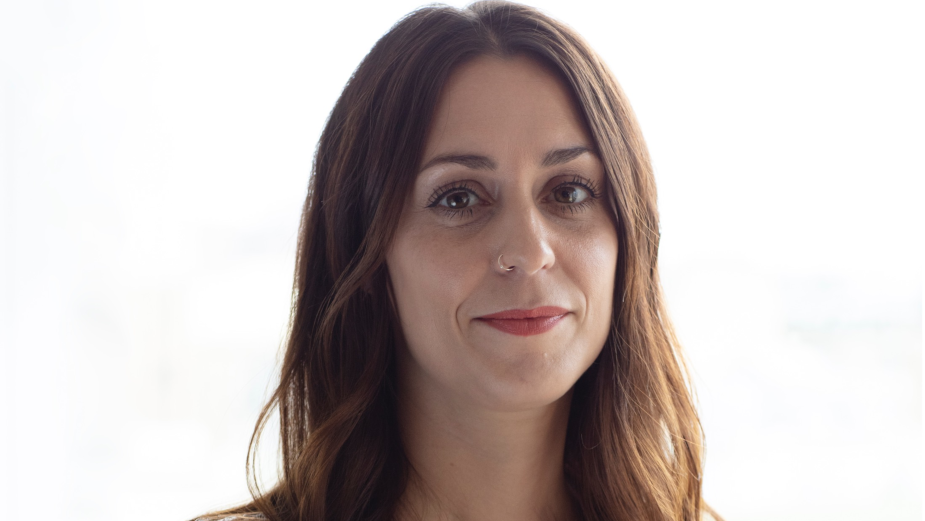
5 Minutes with… Eli Vasiliou

Eli Vasiliou has one of those inquisitive, interested-in-everything minds that creativity thrives in. While leading creative direction for Starbucks UK, abrdn and Haven at Iris, she’s also an amateur perfumer and writer on scent, practices calligraphy and finds various other ways to work with her hands crafting stuff.
With such a naturally creative, maker’s disposition, it might be surprising to learn that an early chunk of her career was spent in account management. But as Iris’ global ECD Grant Hunter told me recently, her move to become a creative in 2010 shows off one of the agency’s strongest traits: “Seeing someone with talent and not being closed to them moving to a different specialism.”
It’s paid off for the agency. Since becoming a copywriter, Eli has worked on ideas that have permeated culture, from Barclays’ ‘Rainbow Laces’ promoting equality for the LGBTQ+ community, to celebrating the Great British Coast for Haven, and reflecting on Starbuck’s place in the lives of many trans people in its potent ‘What’s Your Name?’ campaign.
LBB’s Alex Reeves caught up with Eli to try and better understand this impressive character.
LBB> Where did you grow up and what sort of kid were you?
Eli> I’m strangely proud of being Bromley born and bred. And, maybe it’s weirder that I’m still here, as it’s an in-between sort of place. Not quite London. Not quite Kent. It wasn’t the most diverse or challenging place to grow up in. David Bowie came from Bromley (although he says Brixton). So did a lot of comedians. Punk was big here. Maybe a mix of an easy life with an edge of discontent is a good place for creativity to start.
When I was very little I had an old-skool typewriter. I used to write long and tedious stories about hedgehogs, and I wanted to be a writer when I grew up.
I was also a bit of a show-off. I did all kinds of dancing, I wrote and directed class plays (and usually cast myself in the main part). When I hit my teens I learned as few guitar chords as I needed and screeched my way into various pop-punk and grungey bands. Doing gigs in some of South London’s grimiest pub cellars to an underage crowd high on Hooch and hormones was just the best.
LBB> You had a stint in a production company at the start of your career as a receptionist and production assistant. What are your enduring memories of that?
Eli> An 11K job answering the phone and running digi-beta tapes around Soho – that’s what a university education will give you! Then again, I did study at Coventry so…
I had a vague idea I wanted to be an editor and thought that was my entry point. But what really happened was I got interested in advertising. I loved the short stories we were making as ads at Picasso Pictures, and I realised that I wanted to work earlier up the funnel – before the scripts came to us. That’s when I started looking at ad agencies.
LBB> Then you went into account management. What led you there?
Eli> I got a solid education in creativity at Archibald Ingall Stretton... We used to agonise over the brief to get it right. And we would debate and debate over concepts and feedback. It was really pure. But as I moved up the agency ladder I moved further from the work itself, and gradually I persuaded myself that perhaps I could be a creative.
LBB> What did those two disciplines equip you with when you ended up shifting into the creative department?
Eli> Being an ex-suit is a blessing and a curse. On the up-side, years being a middle-woman between creatives and clients has trained me to distil what’s right and what’s wrong about a piece of work into its simplest form. I can often spot the way forward in between the lines. Having that more rounded agency experience makes me more empathetic. As a creative director I see my role as a diplomat – finding the strings to pull and spots to push that’ll get us to a piece of great work – and everyone still talking to each other at the end of it!
LBB> Your ‘What's Your Name?’ campaign for Starbucks was a fantastic example of a brand having a positive impact on people's lives. How has the legacy of that played out since in the trans community and for Starbucks?
Eli> What’s Your Name? was real. Yes, it was a fictionalised story, but many trans people tried their names for the first time in Starbucks. When the ad came out, it was joyful to see it come full circle, with people tweeting pictures of the cups they’d saved – sometimes for years – with their names written on the side. A badge of honour.
The trans community is under attack – caught up in this so-called culture war – and I think people felt that simply telling a trans story with warmth and empathy was a positive move. Starbucks wanted people to reappraise the brand, and they did. We held up a mirror to Starbucks’ place in culture and let it reflect onto the screen. It wasn’t salesy. We didn’t drape rainbow flags over it.
We approached it more like a short than an ad – that’s one reason we shot it on 16mm. It’s why our director, Nicolas Jack Davies, wanted to cast a non-actor, and build the piece around them – the set dressing, wardrobe, it was all organic and based on a version of reality.
It was Starbucks’ first TV ad made for the UK, and we’ve just shot our second. Directed again by Nick, and set in the same world, the new ad again takes that understated storytelling approach, giving a glimpse into how Starbucks can play a small part in customers’ stories.
LBB> What have you worked on recently that's made you particularly proud and why?
Eli> We’ve recently launched the rebranded ‘abrdn’ with a new platform called ‘The Power of Investment’. We wanted to reframe investment from being synonymous with greed and wealth to something anyone with a pension or some savings could be part of. I heard a statistic the other day that putting your pension into green funds has 117x more impact than cutting an international flight. It’s the biggest thing you can do to help the planet. So have a burger! Go on holiday! When your money’s in the right place, it’s a powerful force for progress.
LBB> I read something you said about how a toothpaste brand doesn't have to promise you an aspirational lifestyle and I loved it. How would you rather brands like that behave in their marketing?
Eli> As an industry, we can be lazy. It’s very easy (although it’ll still take months) to decide a brand is all about ‘togetherness’ or ‘little wins’. It’s far harder to find a USP or real audience truth. So, we build campaigns around a general theme and hope for the best. It’s not a fashionable opinion, but I think the rot began when we all agreed to sell benefits instead of features. That takes real skill to execute. What happens too often is we extrapolate that benefit upwards and upwards and end up in an airy-fairy brand world with no point of difference. And we forget, our customers haven’t seen the slides.
I would love to see more brands being funny again. People love ads that entertain them. WE love them. But comedy requires single-mindedness and dividing the room. And sadly, that’s often seen as brave, rather than necessary.
LBB> How do you feel the impact of the pandemic on the way Iris and your direct team functions as a creative agency?
Eli> Iris has come into its prime. It’s always had an entrepreneurial culture. So, we’ve been able to pivot in the pandemic and thrive. There’s been a transformation agenda that’s coincided with the vulnerability we’ve all been forced to show – zooming from our bedrooms, or juggling the school run between meetings. Iris has always been home to nice people, and now that’s been rooted operationally in our culture. We’re a more open, understanding and caring place to work. And we have a lot of exciting new hires who are messing up the way we do things – in the best possible way.
LBB> I hear you've taken up calligraphy and perfumery. Most people don't do those things. What's the attraction and what do you get out of those creative acts?
Eli> I’m a crafter, more than I am a creative. Working with my hands makes me very happy. There isn’t the angst that comes with conceptual thinking. What I’m drawn to again and again is making perfume. The process of becoming familiar with materials and the way they act chemically with one another has transformed my sense of smell. It’s actually changed one of my five senses – I think that’s amazing. I start with a conceptual idea – the scent of a baby elephant, a fairground on fire, or the bottom of a pocket in a leather jacket. Then I sketch out its component parts as individual accords – for example, candyfloss or pipe tobacco. Once I have those to play with, it gets more mathematical and iterative as I try to balance them into a harmonious experience that gives a show-stopping first impression, but also tells a story over the time it's worn. The process is most similar to developing and mixing music – creating something that’s non-linear and more than the sum of its parts.
LBB> Culturally speaking, what do you find exciting at the moment and what could advertising learn from it?
Eli> I love mixed media. The team behind the series Inside No. 9 are so innovative in the way they enrich live TV with other channels. They’re putting out cryptic crosswords in The Times that become part of the storyline in their BBC show that evening. And sending tweets that give an extra level of realism to a live stream that’s supposedly broken down. The lockdowns have also spring-boarded outfits like Swamp Motel, that mix interactive theatre with online escape rooms. It’s thrilling to be in a Zoom room with your mates and witness a ‘live’ murder. Audience participation – even as simple as hiding an Easter egg in a TV spot – is where it’s at.













